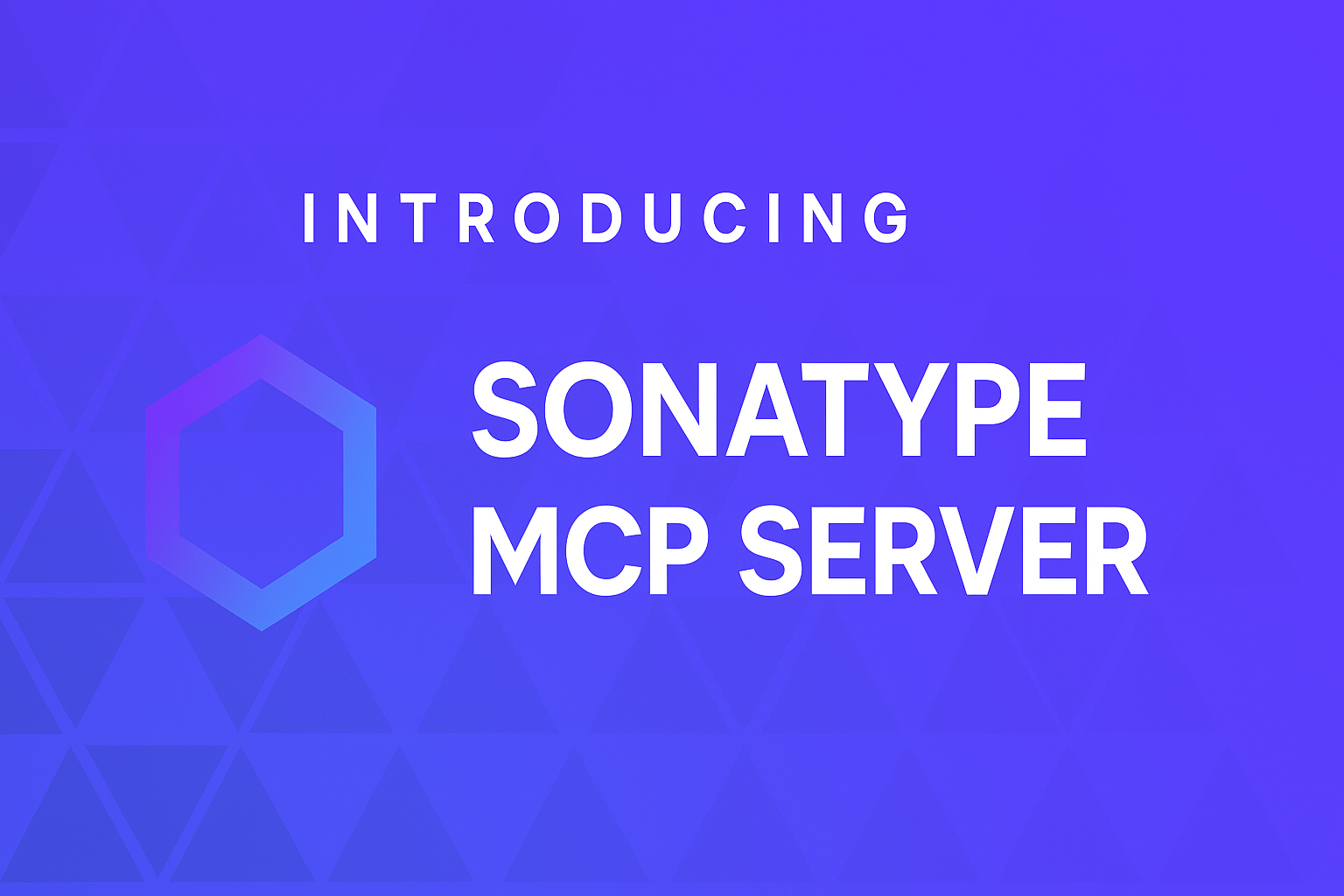
Announcing Sonatype MCP Server: AI-Powered Repository Management for Nexus
I am excited to announce the release of Sonatype MCP Server v1.4.0, a Model Context Protocol (MCP) server that brings the power of AI to Sonatype Nexus Repository Manager. This release enables AI assistants like Claude and Github Copilot to seamlessly interact with your Nexus repositories, streamlining DevOps workflows and repository management tasks.
What is Sonatype MCP Server?
The Sonatype MCP Server is an open-source bridge that connects AI assistants to your Nexus Repository Manager instance through the standardized Model Context Protocol. This integration allows you to manage repositories, components, and system administration tasks using natural language commands, making complex repository operations as simple as having a conversation.
Key Features
Comprehensive Repository Management
- List, view, and manage all repository types (Maven, npm, Docker, PyPI, and more)
- Create, update, and delete repositories with intelligent configuration support
- Manage proxy, hosted, and group repositories effortlessly
Intelligent Component Operations
- Search components across repositories with advanced filtering
- Track component versions and dependencies
- Upload and manage artifacts with automatic validation
- Delete outdated or unnecessary components
Enhanced Security with Firewall Integration
New in v1.4.0! Integration with Sonatype Firewall for quarantine management:
- View components quarantined by security policies
- Release components from quarantine with audit trails
- Analyze policy violation patterns
- Streamline security exception workflows
System Administration Made Easy
- Monitor system health and performance metrics
- Manage blob stores and storage optimization
- Generate support zip files for troubleshooting
Use Cases
DevOps Automation
"Check if version 2.1.0 of our internal library exists in the releases repository.
If not, upload it."
Security Compliance
"Show me all components quarantined by Firewall policies in the last week,
grouped by policy violation type, and prepare a report for the security team."
Dependency Auditing
"Find all components containing 'log4j' across all repositories and check
if any vulnerable versions are still in use."
Storage Optimization
"Identify the largest components in each repository and find duplicate
artifacts that could be consolidated to save storage space."
Getting Started
Installation is as simple as:
1npm install -g @brianveltman/sonatype-mcp
Then configure your AI assistant (Claude Desktop, VS Code, or others) with your Nexus credentials:
1{
2 "mcpServers": {
3 "sonatype-mcp": {
4 "command": "npx",
5 "args": [
6 "-y",
7 "@brianveltman/sonatype-mcp",
8 "--nexus-url", "http://localhost:8081",
9 "--nexus-username", "your-username",
10 "--nexus-password", "your-password"
11 ]
12 }
13 }
14}
Why This Matters
The Sonatype MCP Server transforms how teams interact with their artifact repositories:
- Reduce Learning Curve: Leverage the power of AI to interpret security findings
- Increase Productivity: Execute multi-step workflows with simple natural language
- Improve Accuracy: AI assistance helps prevent common configuration errors
- Enable Self-Service: Empower developers to manage their own artifacts safely
- Enhance Security: Integrated quarantine management streamlines security workflows
Join the Community and Contribute
The Sonatype MCP Server is open-source and open for contributions! Whether you want to:
- 🐛 Report bugs or request features
- 🔧 Submit pull requests for improvements
- 📚 Improve documentation
- 💡 Share your use cases and workflows
Visit the GitHub repository to get involved.
Join us in building the future of AI-powered repository management!
🌟 Star us on GitHub
🐛 Report issues or request features in our issue tracker
💬 Share your success stories and use cases with #SonatypeMCP
The Sonatype MCP Server is released under the MIT License and is not officially affiliated with Sonatype Inc.